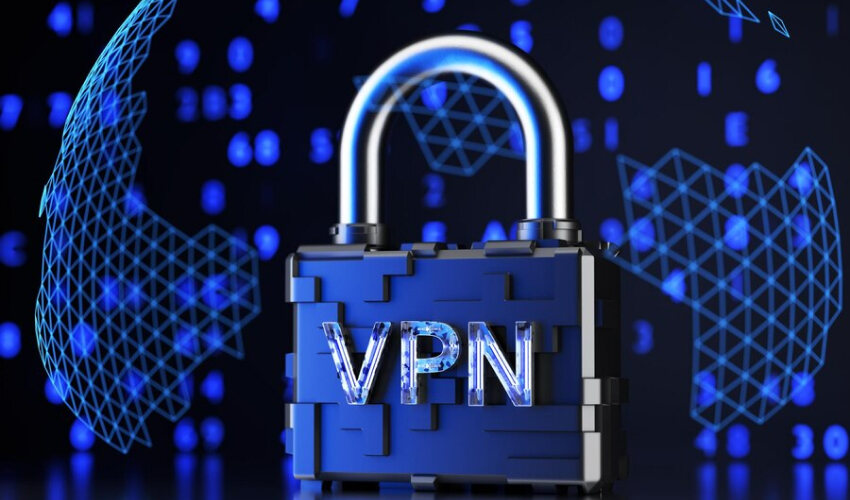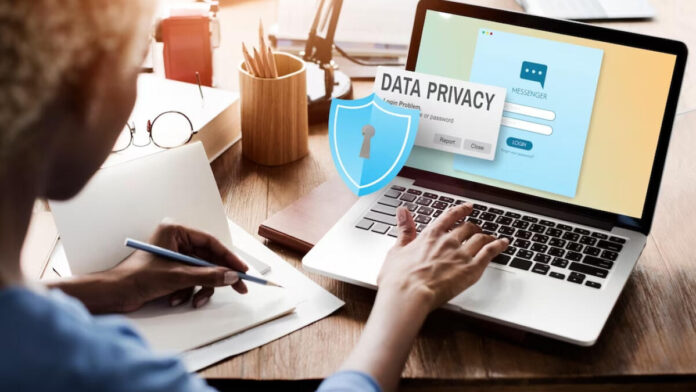Nowadays, in Internet 🌐, protecting the privacy 🔐 of the citizens is very vital. One of the basic and most effective methods of protecting yourself is by hiding your IP address in this modern world. The IP address you have is a special number 🔢 that is assigned to your location and can be used to find 📍 what you do online. By concealing it, you secure your private information, avoid hackers 🦠, and even gain access to some restricted contents 🚫 in certain countries.
This guide will explain best way to hide ip address in 2024📝, varying ways to secure online privacy with a VPN, a proxy server 🖥️, or a browser tool, so you can use the internet with security🛡️ and keep your information private.
Introduction of IP address
Each device connected to a computer network that uses the Internet Protocol is assigned an IP address or Internet Protocol address. As a distinctive identifier, an IP address facilitates properly routing data packets across the vast network of interconnected devices.
It comprises a series of numbers separated by periods, such as XXX.XXX.XXX.XXX, where each set of Xs represents a value between 0 and 255. An IP address let devices to send and receive data, ensuring effective communication within the digital realm. It plays a crucial role in the functionality of the Internet, allowing devices to locate and interact with one another across the global network.
Hide IP Address – Why??
Hiding your IP address online is essential for protecting user identity and privacy on the internet. User IP address is a digital path, reveal user location, browsing habits, and online actions to websites and potentially malicious actors. By concealing your IP, you thwart invasive tracking, data collection, and the creation of masking profiles for advertisements.
Still, hiding user IP address avoid the risk of cyberattacks as hackers often exploit exposed IPs to gain unauthorized access. This protective measure also grants access to region-restricted content, promoting internet license. When data breaches and privacy violation are uncontrolled then hiding IP address Support user to control online account and fortify your defenses against the threats of the digital world.
The Best Ways to Hide IP Address and Secure Your Online Privacy
➣ Virtual Private Network (VPN)
A Virtual Private Network (VPN) is a secure cave associate user device to the Internet. User internet traffic is encrypted when they use VPN, effectual masking user IP address. This covers user online act from middle man attack and provides extra security against cyber threats.

The benefits of using VPNs extend user IP address security. Encryption shields user data from hackers, specially on public Wi-Fi. obscurity is improved as VPNs assign user a different IP, making it complicated to trace online actions.
When selecting a VPN, prioritize factors like hard security protocols, a strict no-logs policy, and a large network of servers. The best VPN to hide IP address are ExpressVPN, NordVPN, and CyberGhost, as they offer the right combination of security, privacy, and performance for a safe and perfect online experience. This is best way to hide ip address in this digital world.
➣ Tor Browser
The Tor Browser, a gateway to the Tor (The Onion Router) network, is synonymous with online obscurity and privacy. Tor’s different approach implicates routing internet traffic through volunteer-operated servers and nodes before extending its destination.
This complicated path covers user IP address by making it almost impossible to trace the origin and destination of data packets. Along, Tor’s encryption assure that each node only knows the previous node and the next node in the route, improve privacy.
Despite its strong privacy features, the Tor Browser has limitations. Due to the multiple conveys, browsing speed is slower than traditional methods. Still, some websites might block when entered through. However, the Tor Browser rest a energetic tool for journalists, activists, and individuals search to avoid ban and protect identities online.
➣ Proxy Servers
Proxy servers are basic in hiding user IP address and improving online security. By producing as mediators between user device and the Internet, they transmit their requests, effectively masking user original IP. There are various type of proxy servers, each with distinct features. HTTP proxies are appropriate for web browsing, HTTPS proxies add encryption to web communication, and SOCKS proxies let adaptable network applications.
While proxy attendant offer benefits like IP anonymization, they also have defect. On the positive side, they bypass content restrictions and filter requests, Supporting privacy. Still, some proxies might log user activity, possibly compromising their privacy. As well, proxy connections will be slower, affecting browsing speed. Hence, while proxy servers are valuable tools, selecting reputable providers and understanding their limitations for sufficient privacy protection is important.
➣ Use of Public Wi-Fi

Public Wi-Fi can Unintentional veil user IP address, as their connection is routed through a shared network’s IP. Still, this can pose major security risks. Public networks often lack strong encryption, making user data vulnerable to catch by cyber criminals. Hackers can employ method like “Wi-Fi snooping” to Catch sensitive information.
To ensure privacy while using public Wi-Fi:
- Exercise caution.
- Managing financial transactions and accessing sensitive data should not be done on these networks.
- Use a VPN to encrypt user traffic.
- Always select networks with passwords and look for encrypted connections (look for “https” in URLs).
Incapacitate file sharing and support firewalls advance security. By sticking to these protection, you can safely leverage public Wi-Fi without loosing personal information.
Also Read – Best Fake IP Address Generator
➣ DNS (Domain Name System) Servers
DNS servers translate human-readable domain names into IP addresses, helping smooth internet browsing. By default, your internet service provider (ISP) assigns DNS servers, but altering these settings can enhance privacy. Changing DNS servers can indirectly mask your IP address, as requests to access websites are routed through different servers, adding an extra layer of obscurity.
Opting for secure and private DNS servers is critical. Services like Cloudflare’s 1.1.1.1 and Google’s 8.8.8.8 offer enhanced privacy and faster query speeds. OpenDNS, known for its customizable filters, also ensures safer browsing. Private DNS providers often commit to not logging user data, minimizing the risk of surveillance. Making a deliberate choice about your DNS servers empowers you to safeguard your IP and browsing activities effectively.
➣ Web Proxies and Anonymizers
Web proxies and online anonymization services give chance to protect your ip address and thus ensure online security. Intervening in the process of communication between a user and a website, web proxies permit the user to connect to the website indirectly and consequently not reveal their IP address.
\They receive your requests, send them to the website, and then send the response back. The technique makes it impossible for anybody to identify your actual IP address and so, you can remain less visible to prying eyes.
On the other hand, web proxies are limited. Some proxies may add lag, thereby making your surfing a slower experience. The unsecured ones would be collecting your data, possibly even sending you ads.
Besides, not every online activity, such as the one that involves dealing with sensitive information or accessing some websites, is safe and suitable to proxy use. While they provide some anonymity, users must be very careful in choosing reputable and secure web proxies so that they can enjoy the advantages and avoid the possible downsides.
➣ IP Masquerading
IP masquerading, also known as Network Address Translation (NAT), is a technique that enhances online privacy by allowing multiple devices within a local network to share a single public IP address. As data travels between the devices and the Internet, the NAT router modifies the source IP address to its own, effectively masking the internal IPs from external entities.
This provides the privacy where the only parties that are being bothered with the router IP address and the other devices identities are kept intact. IP masquerading is extensively used in the home and office networks that allow multiple devices to access the Internet at the same time.
It’s important to security risk issues. NAT has a safety advantage by being a buffer that keeps your devices away from the Internet, but it can also be the cause of misconfigurations or lack of security measures that might expose your internal devices to some threats.
➣ Browser Extensions and Privacy Tools
Browser extensions and privacy tools are a fast way of making the Internet a safer place for you. Some browser extensions allow you to secure your IP address from hacker, which adds an extra layer of anonymity to your online activities. For instance, browser VPN (Virtual Private Networks) and IP spoofing tools designed for privacy not only secure your connection by encrypting the data but also change your IP address to a different one.
VPNs on browsers go to protected servers and give your IP address and data a slippery protection from spying. IP spoofers appear to have a different IP address coming from a different location in order to trick the surveillance and privacy hackers.
While picking tools or extensions, prefer the ones coming from reputable sources. See the user reviews, the permissions it needs, the privacy policy of the extension. Select applications that have a strong user community as well as a frequent update schedule.
Through your choice of tools, you can successfully tap into the potential of these tools to to hide your IP address in 2024, as well as your activities, by making educated choices.
➣ Unplug Your Modem
Unplugging your modem is a simple yet effective action to safeguard your online privacy. Withdraw power from your modem and thus cut off the Internet connection and the IP address that it used to display. As such, you will not be able to be tracked and any data acquired will be cut off.
It’s a quick measure to mitigate immediate concerns, especially if you suspect any unusual or unauthorized online activity. That being said, keep in mind that this is only a temporary solution and could expose you to a different level of risk compared to using VPNs or other privacy tools.
Never squeamishness with trying more durable forms of digital privacy in order to achieve the headquarters of the effect not towards the best of regulation covered.
➣ How to Verify if Your IP Address is Hidden?
Verify the efficiency of disguising your IP address hiding is a prerequisite for online privacy. To do this, you can use online services and websites that are specifically designed to check your IP address to see if it is anonymous or not. This type of services is namely, “WhatIsMyIP.com” or “IPLeak.net” can show whether the VPNs or proxies are masking your real IP properly. Regular checks are needed because, sometimes, you might experience leaks or misconfigurations that would cause your real IP to be visible.
Periodic assessments make sure that the technique you selected for the concealment of IP seems to be effective and thus, your online activities remain unraveled. Technology and security are thus, hide your IP address on a regular basis is a way of making sure that you stay protected from potential vulnerabilities as well as that you are not overexposed in terms of privacy level.
Also Read – ChatGPT Maximum Length for this Conversation Error
FAQs
- How to renew your IP address on Windows
- To renew your IP address on Windows, follow these steps
- Open the Command Prompt as an administrator.
- Type “ipconfig /release” and press Enter to release the current IP address.
- This process can help resolve connectivity issues or change your IP address within your network.
- To renew your IP address on Windows, follow these steps
- How to renew your IP on MacOS
- To renew your IP address on macOS, you can
- Click on the Apple menu and select “System Preferences.”
- Choose “Network” and select your active network connection (Wi-Fi or Ethernet).
- Click “Advanced” and navigate the “TCP/IP” tab.
- Click the “Renew DHCP Lease” button.
- This process will remove your existing IP address and ask for a fresh one from the DHCP server, potentially resolving network issues and updating your IP within the network.
- To renew your IP address on macOS, you can
- Should I hide my IP address?
- IP address concealment is the best option for online privacy and security. It hides you from websites, advertisers, and possible cyber attacks. Moreover, you can now gain access to geographically restricted content and disallow the tracking of your actions.
- So, think about the legality and ethical issues and the methods you pick to have responsible and safe internet.
- Is it illegal to hide IP addresses?
- As for hiding an IP address, there is no such thing as illegal endowed by the act itself. It is the case that many individuals and organizations make use of VPNs, proxies, and Tor services for real purposes, to ensure privacy and security.
- Nevertheless, the use of such means for illegal purposes, like the commitment of cybercrime, can be outraged. Always, you possess the tools within the bounds of the law and the terms of service of platforms you are accessing.
- Can my IP address leak my identity?
- There is a possibility that your IP address may be a cipher for your identity. The data doesn’t reveal any information about you but can still be used to track your online actions. If the website and the bad actors get your IP address, they might use it to get data from you and thus could invade your anonymity.
- Privacy measures such as VPNs, proxies, or the Tor network can help further reduce this risk by hiding your IP address and thereby boosting your online security. Properly configured encryption protocols and proxy servers can also make it difficult for snoopers to correlate your activities across different services.
- And since these sites only see the server’s IP address, the chances of them discovering your true IP address are very low, resulting in an added layer of anonymity.
- Is my IP address permanent?
- Your IP address isn’t fixed. Most Internet Service Providers give a dynamic IP address, which means it can change from time to time, specially if when users reconnect to the Internet.
- A static IP address, which stays the same, is less common and mostly used for special reasons. Even though dynamic IPs can change, they sometimes stay the same for a long time. If user want more privacy, They can use VPNs to hide IP address, which helps make user online activities more private.
Also Read – How to Recover Discord Account
Conclusion
In a world where we’re always online 🌐, keeping our privacy safe is super important 🔒. Hiding your IP address is a great way to protect yourself, as it helps keep your personal information private and stops unnecessary stocking 🕵️♂️. Use tools like VPNs, proxy servers, and browser extensions to secure your IP Address from hackers 🛡️ and enjoy a safer internet experience…✨🔐
Thanks for Reading 🖤
Discover Useful Free Tools Relevant to This Article
Below are some helpful, free web tools that can support your projects and tasks relevant to the ideas and tips shared in this article. These tools are designed to make your work easier and more efficient for free:
2. IP Generator


